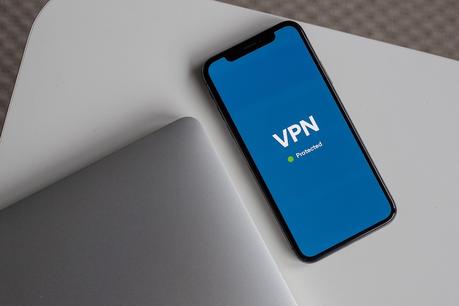Before the internet, anyone who wanted to gamble had to walk into a brick-and-mortar casino. Things are easier now, and you can log into a gambling site and gamble. However, the internet is a dangerous place, with hackers and internet providers all hungry for your data, albeit for different purposes.

Your internet provider can sell your data to third-party companies who send you advertisements based on your browsing activities. This is a privacy violation, but they do it anyway. Depending on where you are, which is your IP address, the government can force your Internet Service Provider (ISP) to put restrictions on which sites you visit.
Using a VPN (Virtual Private Network) is one of the ways most people bypass website restrictions. A VPN provides your device with a safe tunnel that you can use to access the internet.
Here are a few ways a VPN can bypass restricted jurisdiction when you want to gamble.
1. Encryption
A VPN encrypts all your data to and from your device. If you have a habit of logging into your gambling account from unsecured Wi-Fi hotspots such as free networks in cafes and restaurants, you put yourself at risk of being hacked. A VPN uses a 256-bit military-grade encryption standard, which makes it impossible to hack into your device.
2. Hides IP and location
Online gambling is banned in many countries in the world, and ISP providers block the website depending on your location. A VPN allows you to access online casinos with a high anonymity level.
A VPN allows you to use virtual locations and hides your IP address, which allows you to hide your actual location. The VPN reroutes your IP address, which makes it seem like you are in one location while you are in another. For example, if you are in a country that has banned a gambling site, the VPN can make it seem like you are in another country which allows you to access the banned website.
3. Betting Sites Rules on Using VPNs
VPNs are safe and, in most cases, legal. In some countries, VPNs have been banned, but some betting sites do not allow people to use VPNs for whatever reasons. If a betting site catches you using a VPN, some are lenient and limit your account while others terminate your account.
Most gambling sites you sign up with make you agree to their terms that state you should not use a VPN to hide your identity, and most betting companies have gone a step ahead and use software that spots those accounts that keep using VPNs.
The gambling companies' concerns are valid, and they are not only worried that you are hiding where you are, but that a VPN can be used to mask IP addresses and users can sign up under different aliases. This helps the owner of the aliases to claim the welcome bonuses given to new sign-ups. This is called bonus abuse. You can use a VPN when you travel abroad and you are not willing to miss an offer or a bet, or you need to access a betting site that is restricted in your country.
How to choose a VPN provider
Before choosing a VPN service provider, there are essential things you should look out for before signing up.
1. Geolocation
Most VPNs offer security while doing regular browsing, but do not offer geolocation. If you are trying to bypass a geolocation problem, then such a VPN will not help. Ensure the VPN you are about to subscribe to offers you the geolocation feature. To get the best VPNs for a China IP Address, ensure you confirm that the provider does provide geolocation facilities for this.
If a VPN subscription is free, stay away from it. The service providers offer free subscription in return for logging your activities and selling your data to third parties.
The more servers a VPN service provider has, the better its speeds are.
4. Kill-switch
The VPN you choose should have a kill-switch. Which automatically cuts you off from the internet should the connection be interrupted. This ensures nobody sees your IP address in the event the VPN fails.
5. Anonymity
Since we already established some betting sites do not allow VPN, and you are determined to make anonymity a priority, consider a VPN that is big on anonymity. Some VPNs promise anonymity but do not deliver. Ensure the VPN provider does not keep logs of your activities, otherwise, you will not be anonymous when you browse.
Conclusion
Betting online is illegal in some countries, but a VPN will successfully help you to navigate the access restriction issues. The best VPN is one that has a geolocational feature, many strategically placed servers, which increases its speeds, a kill switch, and charges some amount monthly or yearly. Do not trust the free VPNs that promise anonymity, yet log your activities and sell your data to other parties.
